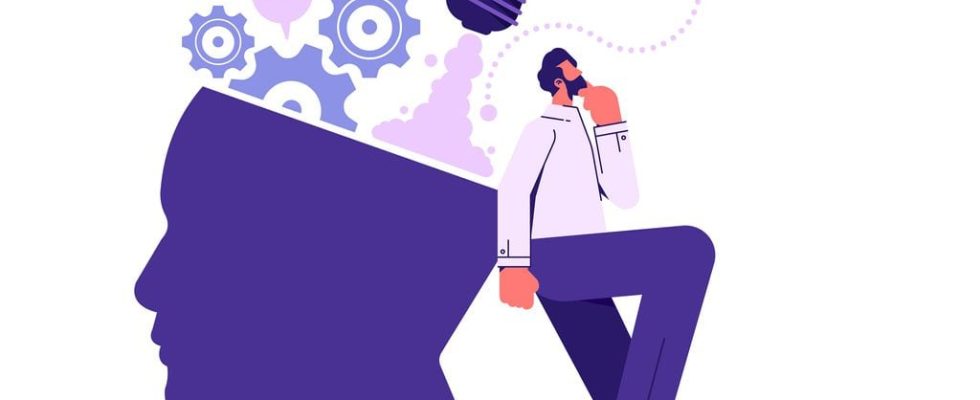A journalist recently asked me about the decline in the average intelligence of the population. There is particularly strong data to answer this question since the tests that aim to assess it were created over a century ago and have been administered regularly to large representative populations in many countries. They clearly show that scores on intelligence tests have continued to increase in all countries throughout the 20th century and are perhaps starting to plateau over the last few decades, but show no signs of decline.
Disappointed with this response, which was too little alarmist for his taste, my interlocutor reminded me: certainly, people are no less intelligent today, but their critical spirit must be in free fall. The proliferation of fake news and doesn’t the popularity of fanciful beliefs suggest that people are ready to believe anything and that they have lost all critical thinking? It is actually very difficult to answer this question. Indeed, unlike the notion of general intelligence, the very definition of critical thinking and the way of measuring it are still to this day a real subject of research in psychology. We do not have any measurement tool that creates consensus, and even more so no series of data over long periods. To judge this, we can therefore only rely on the manifestations of critical thinking that we can observe around us.
It was better before ? On the contrary
It must first be emphasized that we have an exaggerated perception of the impact of fake news, to which social networks and certain media give increased visibility, well beyond the support they actually garner. Very few people believe that the collapse of the Manhattan Twin Towers was a CIA plot or that the Earth is flat. Our contemporaries know how to demonstrate “epistemic vigilance”, that is to say that they are able to evaluate the quality of their different sources of information and to adjust their beliefs according to.
Certainly, our critical mind is far from perfect and has a certain number of well-known and commonly exploited flaws, for example the preference for long-held prior beliefs, or the sensitivity to arguments from authority. But to support the idea that it is in decline, we would still need to have an idea of what it was like in the past. However, as soon as we think a little about the beliefs of our ancestors, we have every reason to believe that they were much worse than ours! We can convince ourselves of this by examining beliefs in two particular areas: health and the supernatural.
No one believes in bloodletting anymore…
In this matter, we can be sorry that some of our fellow citizens still adhere to illusory remedies. But we must remember that for more than two thousand years, the treatment that everyone believed in was bloodletting! Today, no one believes in it anymore, any more than in the theory of humors which was its foundation. There confidence of the French in modern medicine The evidence-based rate is very high, and those who adhere to unconventional medicines generally reserve them for mild ailments that heal spontaneously and for complementary treatments.
If a significant proportion of our fellow citizens still believe in the virtues of homeopathy, osteopathy or psychoanalysis, it is not so much through an absence of critical thinking, as because their epistemic vigilance is deceived by speeches worn by apparently credible people – such as doctors -, over-represented in the media. The latter too often grant a disproportionate place to marginal points of view going against the scientific consensus. There is certainly room for progress there.
The decline of religious beliefs as a sign of progress in critical thinking
Superstitions and supernatural beliefs have not disappeared either, but we only need to remember our grandparents and ancestors to be convinced that they have greatly diminished. Who, today, can’t bear to see a loaf of bread placed upside down or feels obliged to draw a cross on it with a knife before cutting it, like my grandmother did? And if we still talk about “knocking on wood” or “crossing our fingers” to invoke luck, who imagines that it actually works?
Let us also remember that only a few centuries ago, almost the entire French population literally believed that a virgin woman had had a child and that a dead man had become alive again. Few people accept this today, even among Catholics, many of whom now have a more metaphorical reading of the Bible. We can also see the inexorable decline of religious beliefs and superstitions as a sign of progress in critical thinking among the population. It also results from the fact that these beliefs are less and less promoted by authority figures and increasingly in competition with more credible representations of the world from Enlightenment philosophy and science.
Thus, if we want to judge the evolution of critical thinking, it is undoubtedly more relevant to examine the evolution of adherence to beliefs which are truly incredible, than to those requiring scientific knowledge or quality information, necessarily more difficult to access and unevenly distributed. But whatever indicator we set, if the critical spirit of the population evolves, it is certainly more in the direction of progress than decline.
Franck Ramus is Director of Research at the CNRS in the Department of Cognitive Studies at the Ecole Normale Supérieure in Paris.
